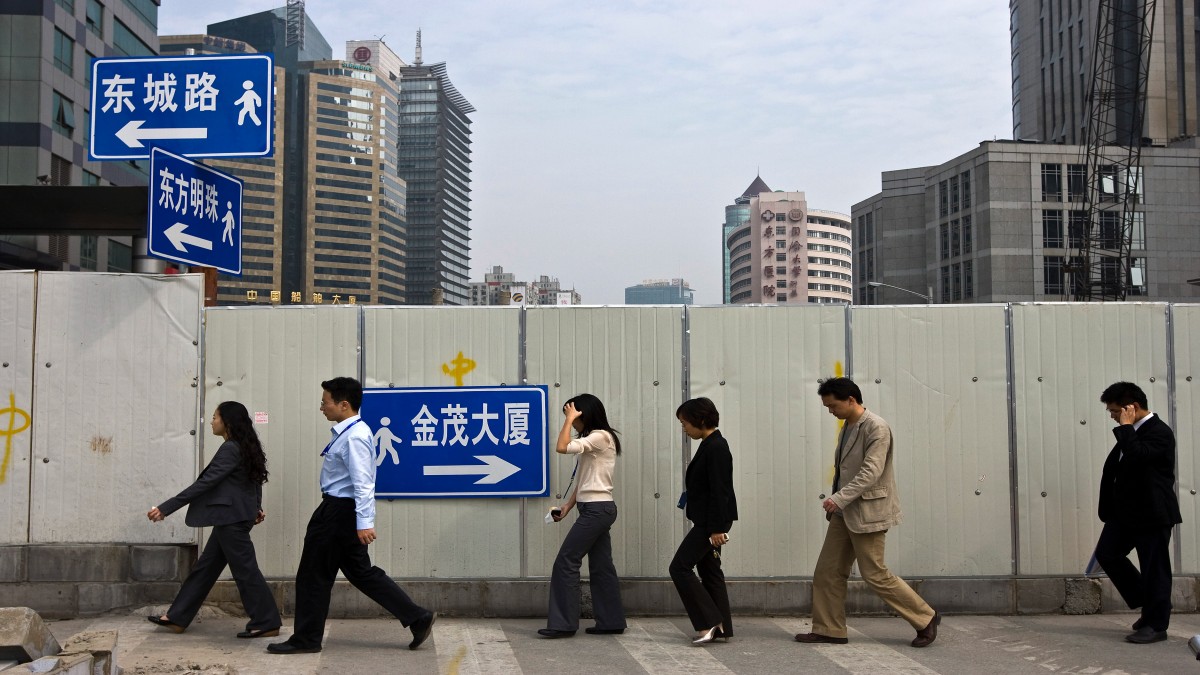The “996” work schedule is a norm in China.
However, young Chinese professionals are resisting the trend.
There’s an increasing trend of “naked resignation” among young people in the neighbouring country, according to Business Insider.
This goes against the conventional practice of working six days a week from 9 am to 9 pm, where even taking a gap year is not seen with suspicion for future careers.
Let’s take a closer look.
The growing trend of naked resignation
“Naked resignation” is a workplace trend in China where professionals resign from a job without a backup plan, as per NDTV.
The trend reflects a growing desire among youth to break free from the relentless grind of corporate life.
It is quite popular on Chinese social media platforms like Weibo, the country’s equivalent of Twitter, and Xiaohongshu.
The expression “LiŎng diŎn yīxiàn,” which characterises the never-ending cycle between home and work, captures the mindset of weariness and exhaustion that serves as the inspiration for the trend, according to Asianet.
The term has also been linked to the trend known as “loud quitting,” in which people use social media to publicly announce their resignations to travel and pursue new interests.
Burnt-out young professionals are taking to social media to announce their resignation and departure to travel the nation or abroad.
A 28-year-old’s widely shared post on Weibo described their resignation following a rise, with a focus on personal goals like travelling and learning English, as per NDTV.
Impact Shorts
More ShortsAlso read: Why Chinese youth are putting up their jobs, bosses for sale
Its impact
The trend aims to liberate people from the endless corporate grind and put their attention into exploring new interests, picking up new skills, and travelling.
This trend has been further encouraged by the pandemic and economic slump, which have caused many young professionals to re-evaluate their job paths and look for a new purpose in their lives.
Naked resignation is not without its difficulties, though.
Some challenges include financial instability, difficulties re-entering the workforce, and gaps in employment history that can raise concerns with potential employers.
While breaks are often seen with scepticism by older generations, naked resignation is becoming more and more popular among young professionals who seek a more fulfilling life outside of the professional rat race.
Mitigating risks
Before quitting, it is advisable to take a few proactive steps such as:
Budgeting: Creating savings can act as a safety net when you’re unemployed.
Networking: One may stay in touch and be aware of possible opportunities by interacting with industry connections and going to professional events.
Seeking new roles while being employed: This step minimises employment gaps and guarantees ongoing income, facilitating a smoother transfer.
Weighing pros and cons: Considering the short- and long-term benefits is necessary to make an informed decision.
Work culture in China
According to a _McKinsey Health Institute_ _survey_ last year, which polled over 30,000 workers in 30 nations, China ranked third with 75 per cent for employees’ well-being. The survey was determined by evaluating their physical, mental, social, and spiritual well-being. Since young people are losing their willingness to follow the intense work culture, burnout is a widespread problem in the country.
As per the 2023 survey by dtcj.com, over 90 per cent of employees had invisible overtime, including 60 per cent who experienced it frequently.
The top three practices included responding to work messages after logging out, participating in training or competitions the company organised and standing by at any time despite without any task assigned. The poll suggests over 73 per cent of people said they worked overtime to finish their workload.
Globally, over 50 per cent of workers exhibit signs of burnout, which increases their likelihood of quitting their jobs by three times.
Researchers looking at demographic disparities in burnout discovered that workers between the ages of 18 and 24 who work for smaller companies and all non-managerial professionals have higher rates of burnout symptoms.
The survey results highlight an important trend: the majority of variation in burnout symptoms may be attributed to demands, or aspects of work that demand energy, including dealing with toxic behaviours or role ambiguity.
To protect the workers from such “invisible overtime,” China was earlier considering offering legal protection to employees forced to stay online even after work hours.
With inputs from agencies


)

)
)
)
)
)
)
)
)



